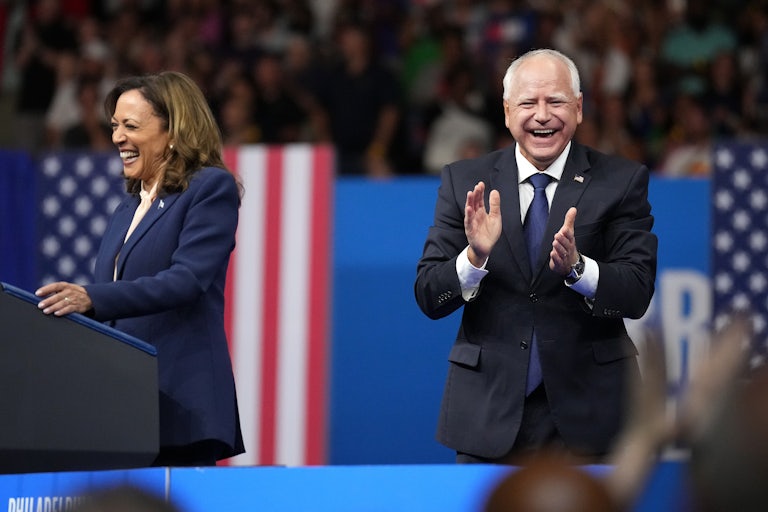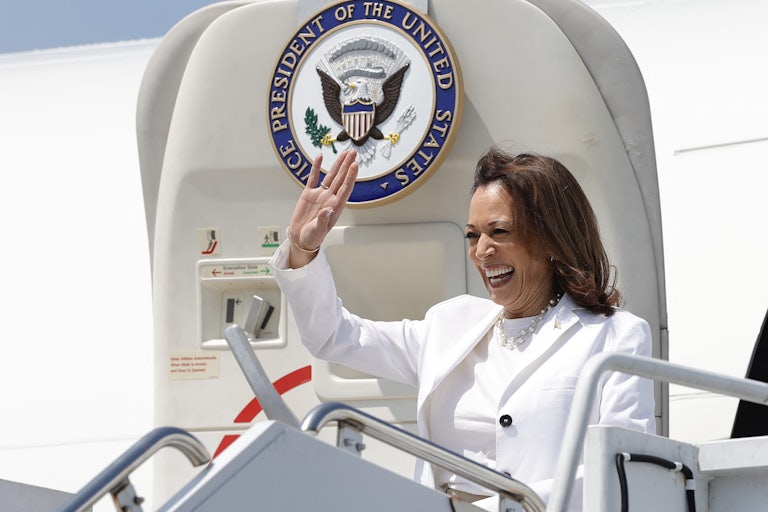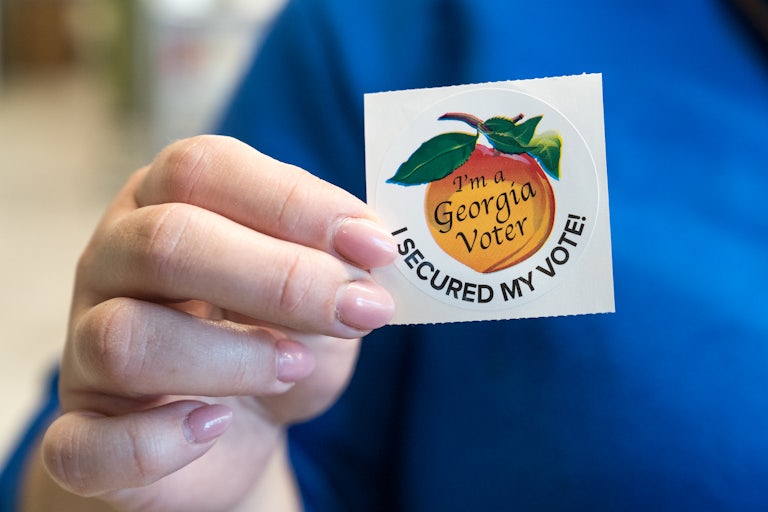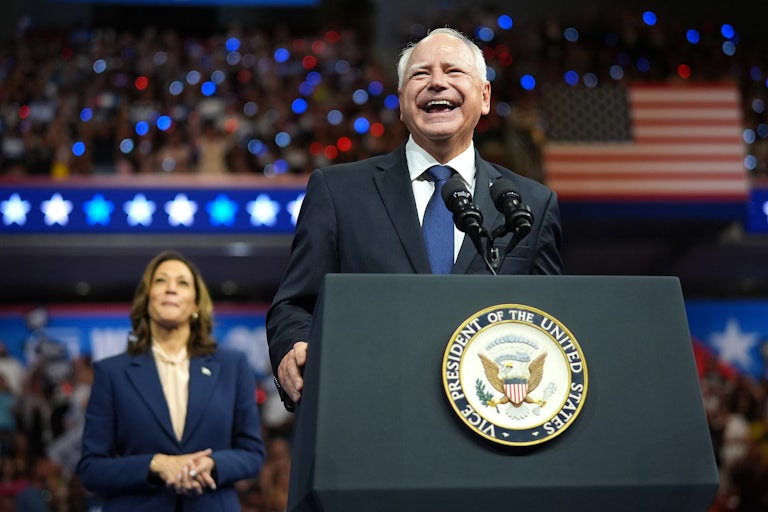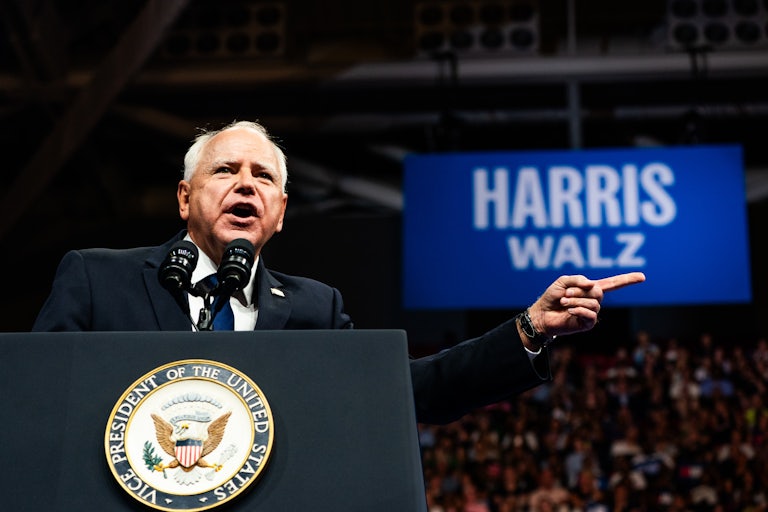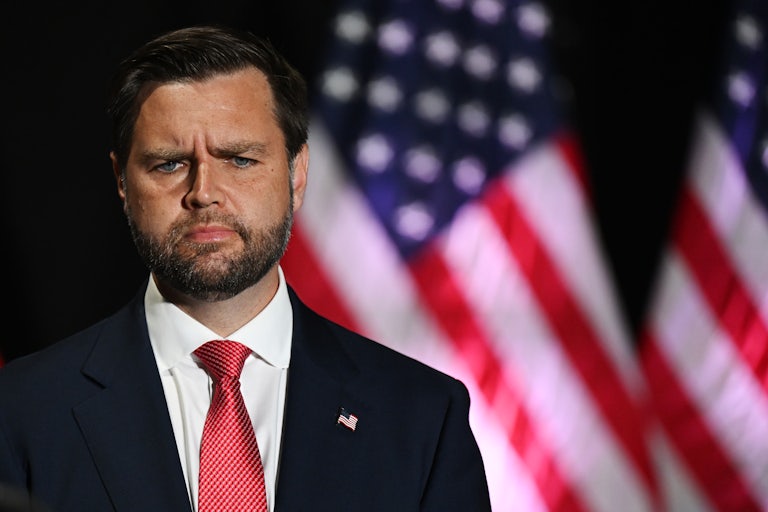Trump Busted Cozying Up to Extremist Leader He Claims to Not Know
Donald Trump insists he knows nothing about Project 2025 or who is behind it, but a newly revealed photo indicates otherwise.
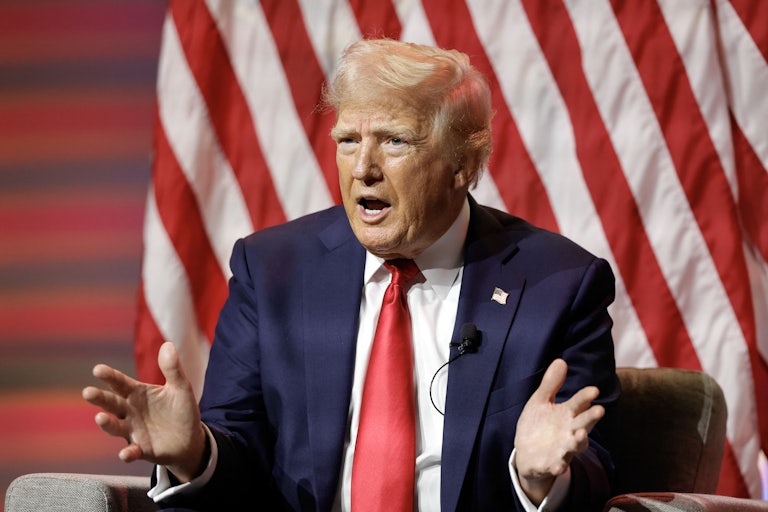
Donald Trump has spent weeks trying to disavow Project 2025 since it became clear just how deeply unpopular the christo-nationalist agenda is among American voters. He even went as far as to claim that he knew “nothing about Project 2025” after the leader of the group organizing it, Heritage Foundation president Kevin Roberts, called for a “bloodless” revolution. But new evidence shows that Trump did know about the plan—and Roberts—as early as April 2022, when the two were photographed on a private flight together, smiling.
“I personally have talked to President Trump about Project 2025,” Roberts told The Washington Post that month, “because my role in the project has been to make sure that all of the candidates who have responded to our offer for a briefing on Project 2025 get one from me.”

Trump and Roberts took that flight, which the Heritage Foundation had chartered, from Trump’s home in Palm Beach, Florida, to the annual Heritage Foundation conference on the state coast. Trump was the conference’s keynote speaker.
“They’re going to lay the groundwork and detail plans for exactly what our movement will do,” Trump said in his speech.
Project 2025 reflects Trump’s core political philosophy, and was designed to be a transition playbook to expedite the first 180 days of a potential second Trump presidency. But the 920-page Christian-nationalist manifesto boasts what would otherwise be considered outrageous policy positions, including dismantling staples of the executive branch such as the Department of Education.
It also proposes revisiting federal approval of the abortion pill, a national ban on pornography, placing the Justice Department under the control of the president, slashing federal funds for climate change research in an effort to sideline mitigation efforts, and repealing policies that help LGBTQ+ people and single mothers, on the basis that these laws threaten “Americans’ fundamental liberties.”
Trump’s campaign has grown increasingly frustrated by reporting on the affiliation between the campaign and Project 2025’s agenda, despite their apparent linkage and the program’s intention of enacting the former president’s wish list.
The two share political philosophies and key allies, including former Trump advisers Stephen Miller and John McEntee. In fact, at least 140 Trump staffers currently work for Project 2025. And as much as Trump wants to distance himself from the apparatus, Project 2025 has been thoroughly involved in staffing a future Trump presidency: Roberts has claimed the project has already “trained and vetted” more than 10,000 people to replace executive branch employees should the presumptive GOP presidential candidate win in November. But they may have more on the way—in November, Trump allies claimed they were looking to install as many as 54,000 pre-vetted Trump loyalists to the executive branch via a “Schedule F” executive order.
“Never before has the entire movement … banded together to construct a comprehensive plan to deconstruct the out-of-touch and weaponized administrative state,” Project 2025’s former director, Paul Dans, told Axios at the time.
Another architect of Project 2025, Russel Vought—whose simmering extremism has been fueled by year-long partnerships with renowned Christian nationalists—“is likely” to be appointed to a high-ranking position in a second Trump administration, the Associated Press reported Monday.
Regardless, senior Trump advisers have warned news outlets against reporting on the connections, repeatedly insisting that Project 2025 has no affiliation or involvement with the Trump campaign, and have instead pointed to Agenda47 as Trump’s official platform. They do not offer an explanation as to why Agenda47 is almost identical to Project 2025.
